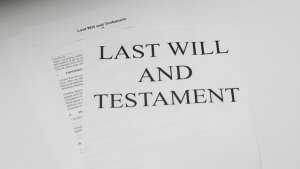Proprietary Estoppel Case Law
Katie de Swarte
Table of Contents
On A Lick And A Promise? The First Hurdle In Proprietary Estoppel Claims
Solicitors are increasingly instructed by clients who have been promised a valuable asset, such as a farm or a property – only to discover it has been left to someone else in a will. The initial burden is on the individual to prove the nature of a promise if they are to succeed, as the courts have recently clarified.
The contested wills and probate solicitors at Osbornes Law are experienced in advising aggrieved individuals as well as personal representatives when disputes arise.
These types of cases are particularly complex and are based on the legal doctrine of proprietary estoppel. If you are affected it is prudent to take early specialist advice before taking any further steps.
What is proprietary estoppel?
In simple terms, proprietary estoppel operates to prevent someone from reneging on an earlier promise or assurance where the person relied on it to their detriment. The courts have often ruled on the issue where farmland and property have been involved, for instance where an adult child worked at reduced wages for many years and gave up alternative employment on the basis of a parent’s assurance they would inherit farm property.
Two new proprietary estoppel cases in quick succession are particularly note-worthy, clarifying that a claimant must prove the nature of a promise or assurance to succeed on the basis of proprietary estoppel.
Gladstone v White
The claimant in the first case lost her claim and had to leave the £15m stately home in which she had lived for several years. The elderly owner, David Gladstone, had been long-term friends with solicitor Leigh White, who moved into the property in 2017.
Gladstone had also appointed her as one of his executors and trustees and made her a beneficiary of the estate trust. The background is complex but, suffice to say that the friendship unfortunately soured and White was asked to leave the property. Gladstone also sought to remove her as trustee.
White refused to move out and claimed that Gladstone had promised her on numerous occasions that she would inherit the stately home. She failed to convince the court that she had relied on any such assurance because of the context in which it was given; and the “telling” absence of any written confirmation to that effect.
The court found that Gladstone intended only that White would have a “significant managerial role” rather than any beneficial entitlement. His comments during conversations fell far short of a promise that she would be its absolute owner.
Mate v Mate
In the second case, the High Court once again ruled that no promise of “sufficient clarity” was made in a case involving a farming family. Julie Mate claimed that her mother promised to leave her a share of the proceeds of the sale of farmland.
However, she later discovered her mother and brothers had agreed to sell part of the land to a developer without her knowledge a year earlier. She also claimed that her brothers – partners in the family business – had known of the alleged promises, which they denied.
Julie claimed to have relied on the promise to her detriment, having paid for a planning consultant for years in relation to plans to develop some of the farmland.
The court emphasised that it is a question of fact whether a defendant was aware of someone else’s promise or assurance and acted in a way that makes it unconscionable for them to resile. Mere standing by or acquiescence can be sufficient.
Julie had not demonstrated there had been promises clear enough to entitle her to believe she would receive an equal share of the sale proceeds. The judge ruled on the evidence that whatever was said to her by her mother was “too vague and unspecific a promise for it to have been reasonable to rely on it”.
Nor was there any evidence that her brothers were aware of what their mother may have said to Julie.
What does this mean?
In any proprietary estoppel case, the individual relying on a promise or assurance must demonstrate that a sufficiently clear promise or assurance was given. If this first hurdle cannot be satisfied, the issue of detrimental reliance on an alleged promise will not fall to be considered.
If you’re considering making or reviewing your will, it is wise to consider whether anything you have said to those close to you could be taken as an assurance or promise that could lead to a dispute.
The contentious probate lawyers at Osbornes are experienced in disputes involving proprietary estoppel claims. If you believe you have a claim, contact us for specialist advice by calling 020 7485 8811.
Share this article
Contact
Contact us today
For a free initial conversation call 020 7485 8811
Email us Send us an email and we’ll get back to you
Related InsightsVIEW ALL
- 9.6.2023
Will Dispute Case Law
New Births And New Relationships? Review Your Will To Avoid A Dispute You’d imagine a wealthy businessman with assets...
Read more - 22.5.2023
Case Law: Dementia-Induced Mild Cognitive Impairment
Dementia is a harsh reality for increasing numbers of families. Sadly, it means the disputed wills solicitors at Osbornes Law...
Read more - 1.3.2023
How to prevent someone contesting a will
It is fairly rare in my experience for a parent to write a child out of their will but that...
Read more - 15.11.2022
Contentious Probate Case Studies
Contentious probate involving business assets Osbornes Law acts for the defendants to a claim issued to pronounce in favour of...
Read more - 27.10.2022
Contesting A Will Case Studies
Will dispute on grounds of lack of capacity Our contesting a will solicitors acted for the claimants, the adult daughters...
Read more - 25.10.2021
Inheritance Claims CFA Success Fee Judgment
The Court of Appeal upholds the recoverability of CFA success fees in 1975 Act claims. An individual who claims reasonable provision...
Read more - 20.10.2021
Evidence Needed When Contesting A Will
‘Scrap King’ Multi-million Inheritance Dispute Confirms the High Standard of Evidence Needed to Contest a Will Gary Goodwin, son of...
Read more - 20.10.2021
Dispute Surrounding Interpretation of Will
The ‘nil rate band’ offers an incentive to testators to make their will in a tax-efficient manner, maximising the amount...
Read more - 20.10.2021
Handwriting Expert Witness Concludes Will Forgery
It’s not unheard of for an individual to forge someone’s will with the aim of securing an inheritance....
Read more - 20.10.2021
Understanding Testamentary Capacity
What is testamentary capacity? Testamentary capacity refers to a person’s ability, both legally and mentally, to create a valid...
Read more - 20.10.2021
Contested Will Claim Against Estate Fails
The recent reported case of Shearer v Shearer highlights that adult children cannot expect an estate to support their affluent...
Read more - 17.9.2021
Funding of Probate disputes
Contentious Probate can be very expensive and clients often find it difficult to find the money to cover their legal...
Read more - 13.8.2021
What is reasonable financial provision in 1975 Act claims?
The long-running and high-profile case of Ilott v Mitson [2017] UKSC 17 has finally come to an end with the decision of...
Read more - 9.10.2020
Undue Influence in Wills
Vigilance Needed to Protect Those Vulnerable to Undue Influence The coronavirus pandemic has left many elderly and vulnerable people increasingly...
Read more - 2.9.2020
What Can I Do if I Have Been...
I was left out of my mother’s last will. What can I do? Whilst testators in England and Wales...
Read more















